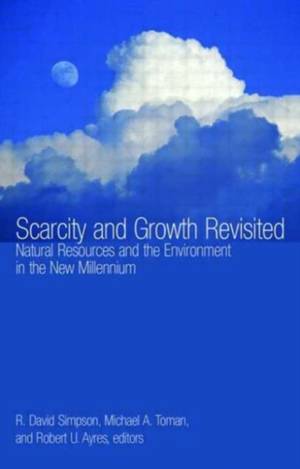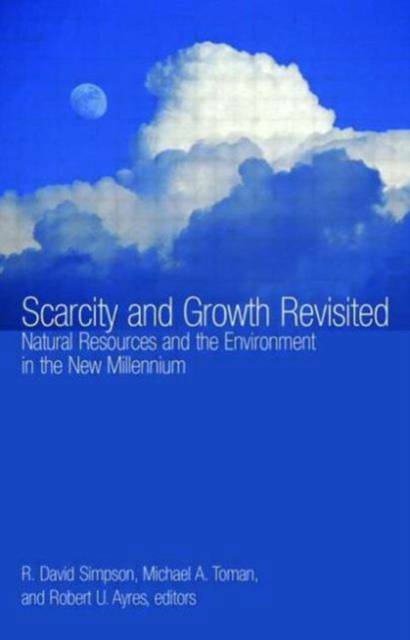
En raison d'une grêve chez bpost, votre commande pourrait être retardée. Vous avez besoin d’un livre rapidement ? Nos magasins vous accueillent à bras ouverts !
- Retrait gratuit dans votre magasin Club
- 7.000.000 titres dans notre catalogue
- Payer en toute sécurité
- Toujours un magasin près de chez vous
En raison de la grêve chez bpost, votre commande pourrait être retardée. Vous avez besoin d’un livre rapidement ? Nos magasins vous accueillent à bras ouverts !
- Retrait gratuit dans votre magasin Club
- 7.000.0000 titres dans notre catalogue
- Payer en toute sécurité
- Toujours un magasin près de chez vous
Scarcity and Growth Revisited
Natural Resources and the Environment in the New Millenium
63,95 €
+ 127 points
Description
In this volume, a group of distinguished international scholars provides a fresh investigation of the most fundamental issues involved in our dependence on natural resources. In Scarcity and Growth (RFF, 1963) and Scarcity and Growth Reconsidered (RFF, 1979), researchers considered the long-term implications of resource scarcity for economic growth and human well-being. Scarcity and Growth Revisited examines these implications with 25 years of new learning and experience. It finds that concerns about resource scarcity have changed in essential ways. In contrast with the earlier preoccupation with the adequacy of fuel, mineral, and agricultural resources and the efficiency by which they are allocated, the greatest concern today is about the Earth's limited capacity to handle the environmental consequences of resource extraction and use. Opinion among scholars is divided on the ability of technological innovation to ameliorate this 'new scarcity.' However, even the book's more optimistic authors agree that the problems will not be successfully overcome without significant advances in the legal, financial, and other social institutions that protect the environment and support technical innovation. Scarcity and Growth Revisited incorporates expert perspectives from the physical and life sciences, as well as economics. It includes issues confronting the developing world as well as industrialized societies. The book begins with a review of the debate about scarcity and economic growth and a review of current assessments of natural resource availability and consumption. The twelve chapters that follow provide an accessible, lively, and authoritative update to an enduring-but changing-debate.
Spécifications
Parties prenantes
- Editeur:
Contenu
- Nombre de pages :
- 304
- Langue:
- Anglais
- Collection :
Caractéristiques
- EAN:
- 9781933115115
- Date de parution :
- 01-06-05
- Format:
- Livre broché
- Format numérique:
- Trade paperback (VS)
- Dimensions :
- 155 mm x 236 mm
- Poids :
- 508 g

Les avis
Nous publions uniquement les avis qui respectent les conditions requises. Consultez nos conditions pour les avis.





